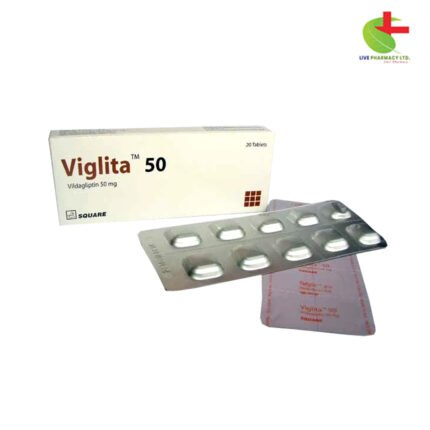Ulrif Suspension
400.00৳ Bottle
- Discover Ulrif by Live Pharmacy, a trusted treatment for duodenal and gastric ulcers, chronic gastritis, and prophylaxis against stress ulceration in critically ill patients.
- Ulrif’s unique formulation, sucralfate, promotes ulcer healing by forming a protective barrier and inhibiting digestive enzymes.
- Our site provides detailed dosage guidelines, administration tips, and safety information, ensuring you make informed decisions about your health.
- Explore how Ulrif can support your gastrointestinal health today.
 Brand
Brand
|
Square Pharmaceuticals PLC |
|---|---|
 Generics
Generics
|
Sucralfate |
 Type
Type
|
Suspension |
 Size
Size
|
200 ML |
Indications
Ulrif is recommended for use in adults and adolescents aged 14 years and older to treat:
- Duodenal ulcers
- Gastric ulcers
- Chronic gastritis
- Prophylaxis of gastrointestinal hemorrhage from stress ulceration in critically ill patients.
Pharmacology
Sucralfate is minimally absorbed from the gastrointestinal tract, primarily excreted in urine. It aids in healing gastric and duodenal ulcers by forming a protective chemical complex at the ulcer site. Sucralfate also inhibits pepsin and bile actions.
Dosage
For duodenal ulcer, gastric ulcer, and chronic gastritis:
- Adults typically take Sucralfate 2 gm twice daily or 1 gm four times daily before meals and at bedtime. The maximum daily dose is 8 gm, potentially extending up to twelve weeks for resistant cases.
- Pediatric safety and efficacy have not been established.
- Elderly patients should use the lowest effective dose.
For prophylaxis of stress ulceration:
- Adults generally take Sucralfate 1 gm orally or via nasogastric tube 4 to 6 times daily, flushing the tube with water after each dose. Duration of treatment depends on risk factors, usually not exceeding 14 days.
Administration
Sucralfate should be taken on an empty stomach. Antacids should not be taken within 30 minutes of Sucralfate.
Interaction
Co-administration of Ulrif may reduce the bioavailability of certain drugs, such as fluoroquinolones, tetracycline, ketoconazole, and others. Administer these drugs at least two hours apart from Ulrif. Avoid co-administration with citrate preparations due to potential aluminum absorption.
Contraindications
Sucralfate is contraindicated in patients hypersensitive to sucralfate.
Side Effects
Common side effects include headache, nausea, abdominal pain, constipation, diarrhea, and urticaria. Bezoar formation has been reported in some patients, particularly those with predisposing conditions or receiving enteral tube feedings.
Pregnancy & Lactation
Safety in pregnancy is uncertain; use during pregnancy only if clearly needed. Use caution when administering to breastfeeding women.
Precautions & Warnings
Use Ulrif cautiously in patients with renal dysfunction to avoid increased aluminum absorption. Regular monitoring of aluminum levels and related parameters is recommended in patients with severe renal impairment.
Use in Special Populations
Avoid use in children under 14 years due to insufficient data. No dosage adjustments are needed for elderly patients.
Overdose Effects
Overdose cases with Ulrif have generally been asymptomatic; symptoms such as abdominal pain, nausea, and vomiting have been reported in some instances.
Therapeutic Class
Ulrif belongs to the chelating complex class of medications.
Storage Conditions
Store Ulrif in a cool, dry place, protected from light.













Reviews
There are no reviews yet.